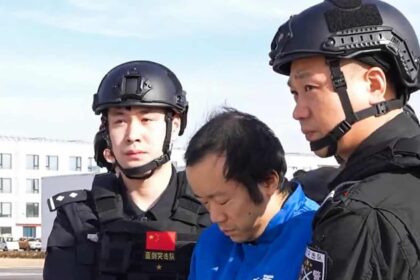Mandarin as a Tool of Soft Power: Taiwan’s Global Language Push
In classrooms from London to Los Angeles, a new kind of Mandarin lesson is taking root. Here, students learn to say “MRT” as jieyun—a uniquely Taiwanese term—rather than the mainland Chinese ditie. Reading exercises might explore the vibrant chaos of Taiwan’s night markets, with references to stinky tofu and bubble tea. Writing is done in traditional Chinese characters, not the simplified script used across the Taiwan Strait. And students are encouraged to introduce themselves as Taiwanese: “Wo shi tai wan ren, ni ne?”—I am Taiwanese, how about you?
- Mandarin as a Tool of Soft Power: Taiwan’s Global Language Push
- Why Language Matters: The Concept of Soft Power
- From Confucius Institutes to TCML: Filling a Global Gap
- What Makes Taiwanese Mandarin Different?
- Soft Power in Action: Beyond the Classroom
- Challenges and Limitations: Can Taiwan Compete with China?
- Soft Power Beyond Language: The “Love Boat” and Cultural Diplomacy
- Mandarin as a Battleground: The Geopolitics of Language Education
- Looking Forward: Opportunities and Recommendations
- In Summary
These are the hallmarks of the Taiwan Centre for Mandarin Learning (TCML), a government-backed initiative that is rapidly expanding across the globe. Since its launch in 2021, Taiwan’s Overseas Community Affairs Council has established 88 TCMLs in major cities throughout Europe and the United States, with plans to reach Australia, Canada, Japan, and New Zealand by 2026. The goal: to use Mandarin language education as a vehicle for cultural diplomacy, international goodwill, and, crucially, soft power.
Why Language Matters: The Concept of Soft Power
Soft power, a term coined by political scientist Joseph Nye, refers to a country’s ability to influence others through attraction and persuasion rather than coercion or payment. In the context of international relations, soft power is exercised through culture, values, and policies that inspire admiration or emulation. For Taiwan—a self-governing democracy with limited formal diplomatic recognition—soft power is a vital tool for maintaining its global presence and countering pressure from China.
Language is a particularly potent form of soft power. By teaching Mandarin with “Taiwanese characteristics,” Taiwan is not only promoting its language and culture but also projecting its identity as a free, open, and democratic society. This stands in contrast to China’s approach, which has been criticized for using language programs as vehicles for political influence.
From Confucius Institutes to TCML: Filling a Global Gap
For years, China’s Confucius Institutes (CIs) dominated the global Mandarin education landscape. Established in 2004, these government-funded centers were embedded in universities and colleges worldwide, promoting Chinese language and culture. However, as geopolitical tensions between China and the West intensified, CIs came under scrutiny for alleged censorship, propaganda, and even espionage. Sensitive topics—such as the Cultural Revolution, Tibet, or human rights—were reportedly off-limits in CI classrooms.
By 2018, there were about 100 CIs in the United States alone. But by 2023, fewer than five remained, following a wave of closures driven by political concerns in both the US and Europe. This created a vacuum in Mandarin education—one that Taiwan was quick to fill.
As Dr. Elaine Chung, a Chinese studies lecturer at Cardiff University, explained, “These nations share democratic norms and are likely seen by the Taiwanese government as providing a favourable context for cultivating long-term international goodwill and political support amid intensifying cross-strait tensions.”
TCMLs are typically established within existing language schools or community associations, which receive Taiwanese government funding and resources. The program has already spent an estimated NT$541 million (about S$23.1 million) and is set to expand further in the coming years.
What Makes Taiwanese Mandarin Different?
At the heart of the TCML curriculum is a version of Mandarin that is distinctively Taiwanese. This is evident in vocabulary—like jieyun for MRT—and in the use of traditional Chinese characters, which are seen by many as more aesthetically pleasing and culturally authentic than the simplified script used in mainland China. Lessons often incorporate Taiwanese culture, from the country’s famous night markets to its democratic values and history.
Ms. Katja Ting, who runs the Hua Hsia Chinese School (a TCML center) in London, noted that many students are drawn to traditional characters for their beauty or because they align with the Japanese Kanji writing system. “One of our students said that it has always been his dream to learn traditional characters because he thinks they’re more beautiful,” she said. “Our Japanese students also prefer it because the same characters are used in their Kanji writing system.”
However, this uniqueness is a double-edged sword. As Dr. Jeffrey Gil of Flinders University pointed out, “The education system in most countries teaches Modern Standard Chinese as it is spoken and written in China, which is ‘putonghua’ with simplified characters. That means that TCMLs are teaching a kind of Chinese that most students haven’t studied and which doesn’t match their prior learning experiences.” This raises questions about how TCMLs can integrate with existing Chinese language programs abroad.
Soft Power in Action: Beyond the Classroom
Taiwan’s language diplomacy extends far beyond the walls of TCMLs. The government offers scholarships for international students to study Mandarin in Taiwan, runs exchange programs for teachers, and partners with universities worldwide. For example, Harvard University moved its summer Mandarin program from Beijing to Taipei’s National Taiwan University in 2021, citing operational difficulties in China. Since then, over 20 US universities—including UCLA, MIT, and Duke—have partnered with Taiwanese institutions for Mandarin education.
The US-Taiwan Education Initiative, launched in December 2020, aims to expand access to Mandarin and English instruction while safeguarding academic freedom. These partnerships are attractive not only because of Taiwan’s stable pandemic situation but also because they offer an alternative to China’s increasingly politicized education environment.
In Southeast Asia, Taiwan’s efforts are more grassroots. In Vietnam, for instance, official ties are limited by the government’s adherence to the One-China policy, but Taiwan’s de facto embassy organizes education fairs, scholarships, and media collaborations. Social media and digital platforms have become crucial for reaching students, especially as interest in traditional Chinese characters grows among Vietnamese youth and intellectuals.
Challenges and Limitations: Can Taiwan Compete with China?
Despite its successes, Taiwan faces significant challenges in its soft power push. China’s economic and political dominance means that, for many students, learning Mandarin as it is spoken in China offers greater academic and career opportunities. As Dr. Chung’s research with UK university students revealed, even those critical of China’s political system often prefer to learn the mainland version of Mandarin for pragmatic reasons.
Moreover, most Mandarin curricula outside Taiwan are centered on simplified characters and mainland pronunciation, limiting awareness of Taiwanese Mandarin. Taiwan’s decentralized approach—while fostering academic freedom—can also result in inconsistent quality and limited visibility compared to China’s more centralized and well-funded efforts.
There are also practical barriers. In countries like Vietnam, access to Taiwanese Mandarin education is limited and often more expensive than PRC-backed programs. Outside major cities, awareness of Taiwan’s offerings remains low, and outreach is limited by diplomatic constraints.
Soft Power Beyond Language: The “Love Boat” and Cultural Diplomacy
Language is just one facet of Taiwan’s broader soft power strategy. Programs like “Love Boat Taiwan”—formally the Overseas Compatriot Youth Taiwan Study Tour—have played a crucial role in shaping Taiwanese American identity and building global support for Taiwan. Since its inception in 1966, the program has brought thousands of overseas Chinese and Taiwanese youth to Taiwan for language study, cultural immersion, and personal connections. Notable alumni include US Congresswoman Judy Chu and singer Wang Leehom.
Initially focused on promoting Chinese culture and KMT ideology, the program has evolved to emphasize Taiwanese culture, democracy, and diversity. Today, it is seen as a prestigious opportunity for young people to connect with their heritage and experience Taiwan’s vibrant society firsthand. The government hopes that participants will become informal ambassadors, sharing their experiences and fostering international goodwill.
Mandarin as a Battleground: The Geopolitics of Language Education
The global demand for Mandarin education has turned language into a battleground for soft power between China and Taiwan. While China’s Confucius Institutes once dominated, their decline has opened the door for Taiwan’s TCMLs to offer a democratic and open alternative. In Central Europe, for example, Taiwan’s decentralized network of language centers is gaining traction, especially in countries wary of Chinese political influence.
Unlike the Confucius Institutes, which are often embedded in national education systems and closely tied to the Chinese government, TCMLs operate as independent, grassroots partnerships rooted in civil society. This approach emphasizes academic independence and intellectual freedom, aligning with the values of many Western democracies.
To further strengthen its position, Taiwan is investing in standardized teacher qualifications, updated assessment tools, and a unified curriculum through initiatives like the 2025 Mandarin Education Enhancement Program. The aim is to enhance learning outcomes and solidify Taiwan’s leadership in global Mandarin education.
Looking Forward: Opportunities and Recommendations
For Taiwan to fully realize its soft power potential, experts suggest several strategies:
- Clearer Articulation of Identity: Taiwan should more effectively communicate its cultural continuity with the broader Chinese world while highlighting its distinctiveness as a democracy.
- Practical Incentives: Emphasizing career pathways in Taiwan’s industries—such as technology and semiconductors—could make Taiwanese Mandarin more attractive to international students.
- Curriculum Reform: Working with foreign educators to integrate Taiwanese Mandarin and culture into mainstream curricula would increase visibility and relevance.
- Digital Outreach: Expanding online courses and resources can help overcome geographical and diplomatic barriers, especially in regions like Southeast Asia.
- Alumni Engagement: Leveraging former students and program participants as language ambassadors can foster grassroots connections and share authentic experiences of Taiwan’s society.
Ultimately, Taiwan’s promotion of Mandarin with Taiwanese characteristics is about more than language—it is a statement of identity, values, and aspiration on the global stage. As the world’s first Chinese democracy, Taiwan’s soft power efforts offer a compelling alternative in an era of shifting geopolitical tides.
In Summary
- Taiwan is using Mandarin language centers (TCMLs) worldwide to project soft power and promote its democratic identity.
- TCMLs teach Mandarin with unique Taiwanese features, including traditional characters and local cultural references.
- The initiative fills a gap left by the closure of China’s Confucius Institutes amid concerns over political influence and censorship.
- Taiwan’s language diplomacy extends to scholarships, teacher exchanges, and cultural programs like “Love Boat Taiwan.”
- Challenges remain, including China’s economic dominance, limited awareness of Taiwanese Mandarin, and practical barriers in some countries.
- Experts recommend clearer articulation of Taiwan’s identity, practical incentives, curriculum reform, digital outreach, and alumni engagement to strengthen soft power.
- Mandarin education has become a key battleground for influence between China and Taiwan, with language serving as both a cultural bridge and a tool of international diplomacy.












